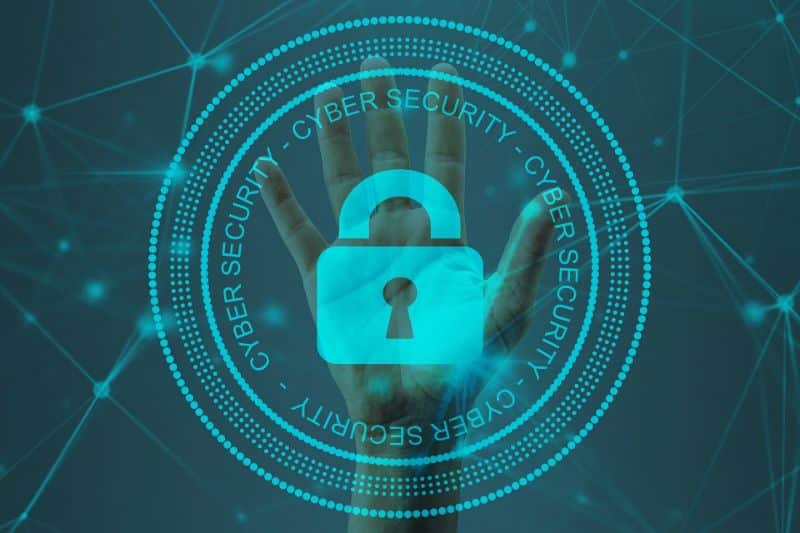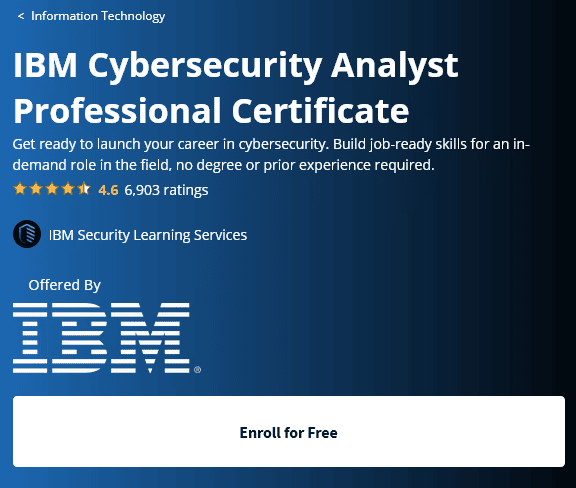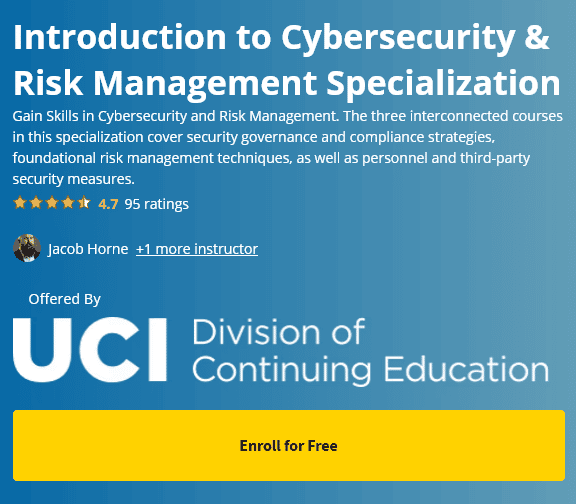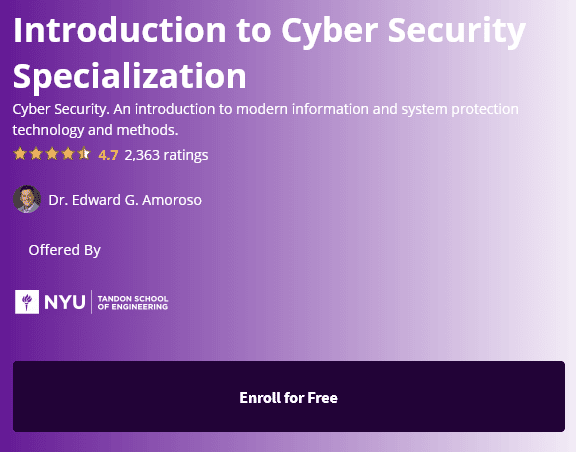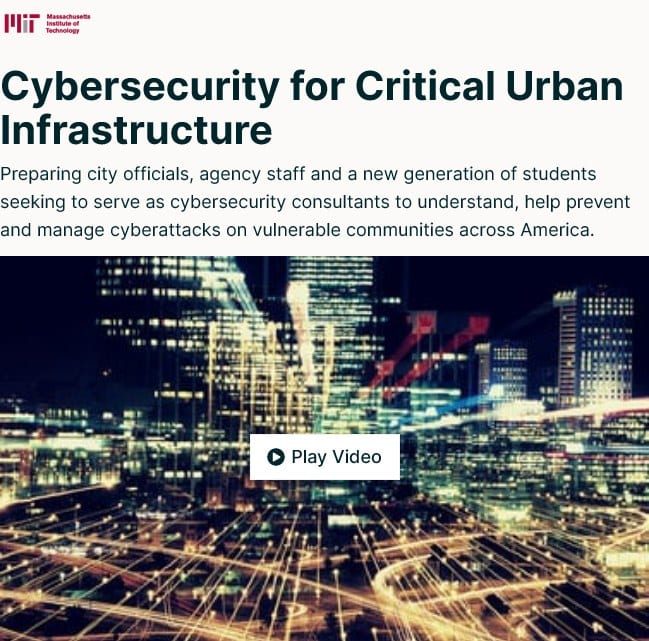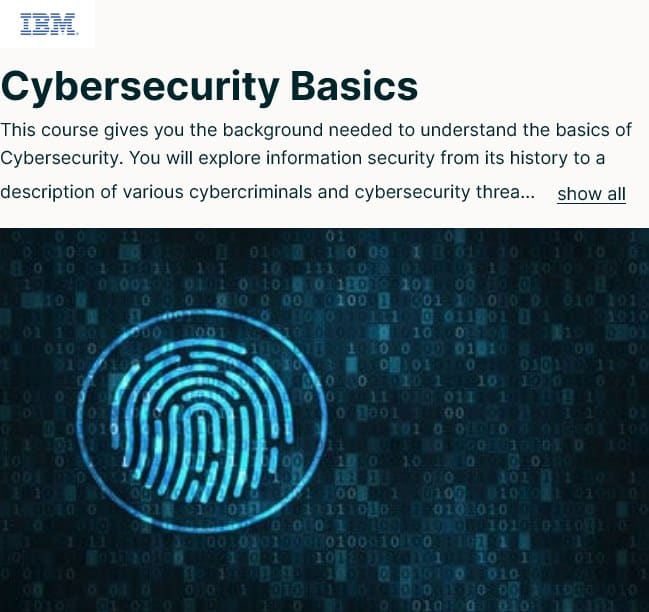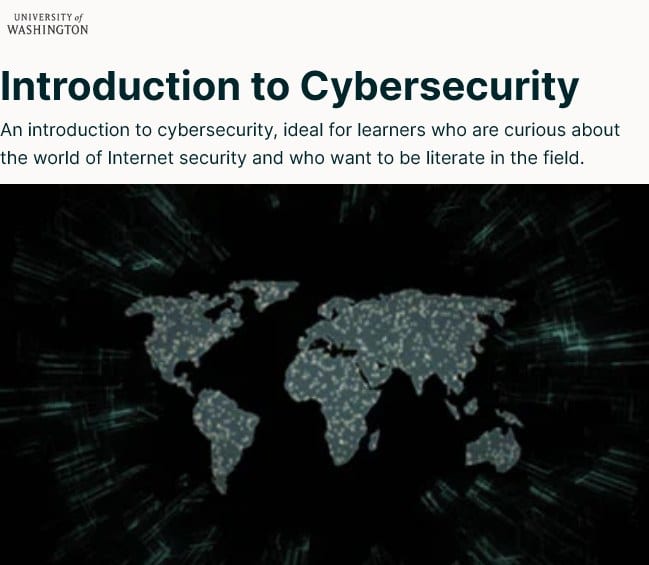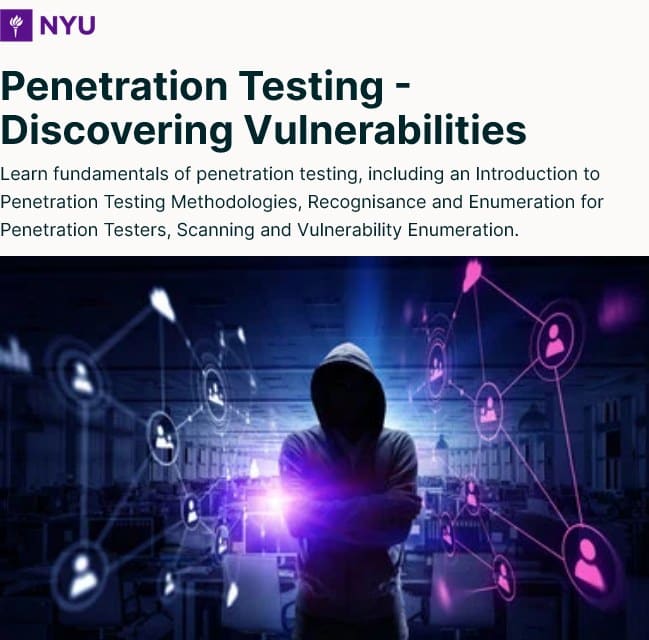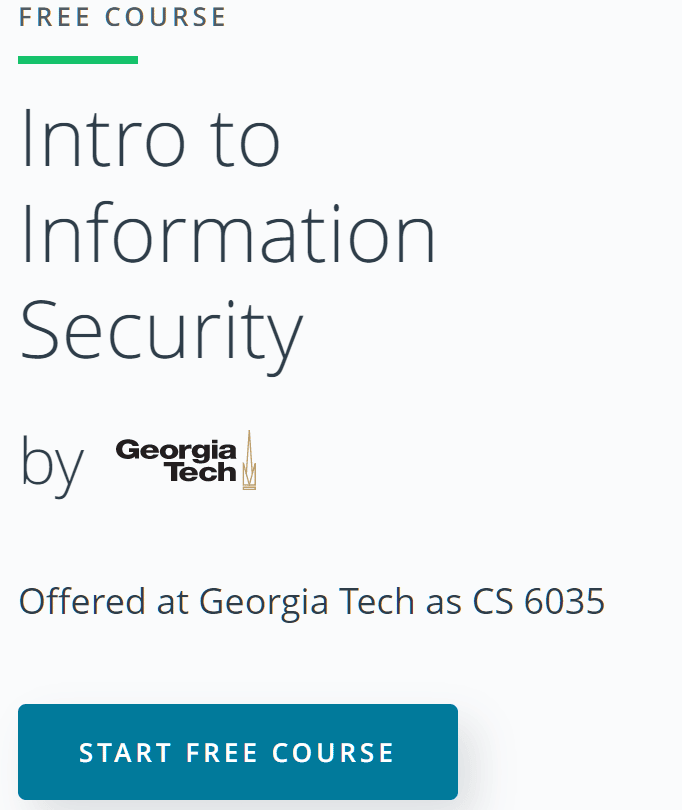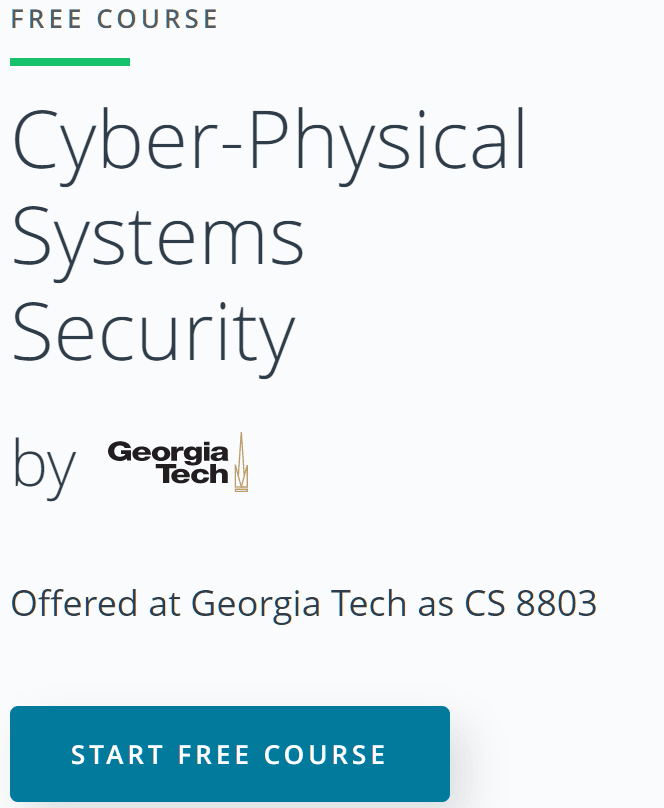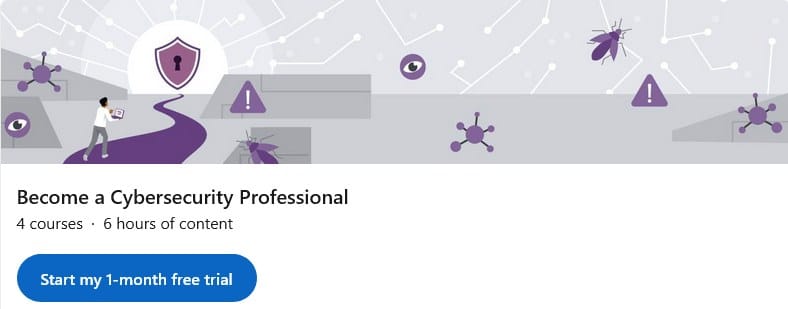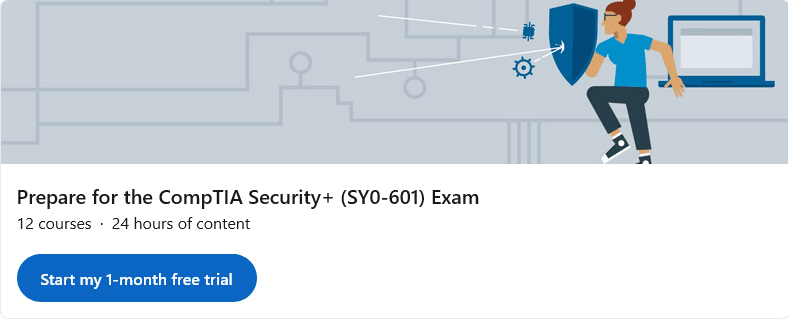Are you interested in learning more about cyber security but don’t know where to start? Or maybe you’re a seasoned pro and are looking for some additional training.
Either way, there are plenty of free online cyber security courses out there that can help teach you the basics or provide you with more advanced knowledge in this ever changing field.Check out some of the best options below.
Table of Contents
Cyber Security Free Online Courses
IBM Cybersecurity Analyst Professional Certificate
IBM Cybersecurity Analyst is a professional certificate program that helps you develop the skills needed to become a successful cybersecurity analyst. The program includes eight courses that cover everything from an introduction to cybersecurity tools and cyber attacks, to network security and database vulnerabilities, to incident response and forensics.
IBM also offers a Cybersecurity Analyst Assessment to help you gauge your progress and understanding of the material. And if you upgrade to a paid plan upon completion of the program, you will receive an IBM Cybersecurity Analyst certification that can be used to demonstrate your newfound expertise to potential employers.
Introduction to Cybersecurity & Risk Management Specialization – UCI
The UCI Introduction to Cybersecurity & Risk Management Specialization offers a comprehensive and well-rounded introduction to the cybersecurity field.
The specialization consists of three courses: Security Governance & Compliance, Introduction to Risk Management, and Personnel & Third-Party Security. Each course covers a different aspect of cybersecurity, providing students with a comprehensive understanding of the field.
The Security Governance & Compliance course covers the NIST cybersecurity framework and relevant laws and regulations.
The Introduction to Risk Management course covers topics such as business continuity planning and disaster recovery.
Finally, the Personnel & Third-Party Security course covers vendor risk management and securing critical infrastructure. These three courses provide a solid foundation for anyone interested in pursuing a career in cybersecurity.
Introduction to Cyber Security Specialization – NYU
The Introduction to Cyber Security Specialization offered by NYU is a great way to get started in the field of cyber security. The specialization covers four courses, each of which focuses on a different aspect of cyber security.
The first course, Introduction to Cyber Attacks, covers the basics of how cyber attacks are carried out and the different types of attacks that exist.
The second course, Cyber Attack Countermeasures, covers the steps that can be taken to defend against attacks.
The third course, Real-Time Cyber Threat Detection, and Mitigation, covers the methods and technologies used to detect and respond to threats in real-time.
Finally, the fourth course, Enterprise, and Infrastructure Security, covers the steps that need to be taken to secure enterprise networks and critical infrastructure.
The specialization takes four months to complete and requires no prior knowledge of cyber security. Skills such as cryptography, cybersecurity, risk assessment, and cyber defense will be learned on-demand throughout the duration of the specialization.
Cybersecurity Specialization University of Maryland
The University of Maryland offers a Cybersecurity Specialization that consists of five courses: Usable Security, Software Security, Cryptography, Hardware Security, and a Cybersecurity Capstone Project.
The specialization is designed to give students the skills and knowledge necessary to design and build secure systems. The courses cover topics such as buffer overflows, SQL injection, and session hijacking.
In addition, the specialization provides students with the opportunity to complete a Cybersecurity Capstone Project. The project gives students the chance to apply what they have learned in a real-world setting, and those who upgrade to a premium plan get a certificate upon completion of the project.
Cybersecurity for Critical Urban Infrastructure – MIT
Cybersecurity for Critical Urban Infrastructure is a free online course offered by MIT that provides an overview of the scope and impact of cyber attacks and how to prepare for and respond to them. The course covers topics such as vulnerability assessment, incident response, and crisis management. It also includes interviews with public agency staff who offer insight into the challenges of protecting critical infrastructure from cyber threats.
Cybersecurity Basics – IBM
Cybersecurity basics is a free online course offered by IBM. It is open to anyone, regardless of experience levels in IT or Cybersecurity. The course is self-paced and can be completed in about four weeks.
In this course, students will learn key concepts related to Cybersecurity, including confidentiality, integrity, availability (the “CIA triad”), social engineering, and cybersecurity attack models. Students will also develop skills in critical thinking and penetration testing basics.
This course is a great way to get started in Cybersecurity or learn more about Cybersecurity threats and how to protect against them.
Introduction to Cybersecurity – University of Washington
The University of Washington offers a free online course called Introduction to Cybersecurity. This course covers key terms in the field of cybersecurity, types of controls for different threat actors, and international agencies related to cybersecurity. It also discusses legal challenges in cybersecurity.
This course is designed for people who are new to the field of cybersecurity or who want to learn more about it. It is also helpful for people who work in other fields that interact with cybersecurity, such as law enforcement or information technology.
The course is divided into four modules, each of which contains several lessons, and you can start taking the course at any time and work at your own pace.
Penetration Testing – Discovering Vulnerabilities – NYU
NYU offers a free online course on Penetration Testing that covers the basics of this cybersecurity discipline. Penetration Testing is a cybersecurity simulation game where you play the role of an attacker, trying to discover vulnerabilities in a system. Cybersecurity experts use Penetration Testing to evaluate the security of their systems and find weaknesses that could be exploited by attackers.
The course is divided into five weeks, and each week focuses on a different aspect of Penetration Testing.
In the first week, you will learn about different Penetration Testing Methodologies. In the second week, you will focus on Reconnaissance and Enumeration for Pen Testers. You will learn about different scanning techniques in the third week. The fourth week is dedicated to Vulnerability Enumeration. Finally, in the fifth week, you will take a final exam to test your knowledge.
Intro to Information Security – Georgia Tech
Intro to Information Security is a free online course offered by Georgia Tech. This class is designed for those with little to no background in cyber security. The course is broken up into five lessons, with each lesson covering a different topic.
In the first lesson, students learn about the security mindset and essential concepts such as policy, confidentiality, integrity, and availability (CIA Triad). The second lesson covers software security, including vulnerabilities and protections, malware, and program analysis.
The third lesson focuses on practical cryptography, discussing topics such as encryption, authentication, hashing, and symmetric and asymmetric cryptography. In the fourth lesson, students will learn about networks, including wired and wireless networks, protocols, attacks, and countermeasures.
The fifth and final lesson covers applications and special topics such as databases, web applications, privacy and anonymity, voting systems, and public policy.
Cyber-Physical Systems Security – Georgia Tech
The Cyber-Physical Systems Security (CPSS) online mini-course from Georgia Tech provides a snapshot of CPS security via three self-paced lessons that can each be completed in 4-6 hours. The three lessons cover 1) Foundations of Cyber-Physical System Security, 2) Industrial Networks, and 3) Control System Security.
Upon completion of the CPSS mini-course, students will have a fundamental understanding of CPS security via an overview of relevant concepts, trends, challenges, and opportunities. Best of all, the CPSS mini course is free and open to anyone with an interest in Cyber-Security and Cyber-Physical Systems.
Network Security – Georgia Tech
Georgia Tech offers a free online course that covers all the basics of Network Security. The course is divided into three lessons, each of which focuses on a different aspect of security. In the first lesson, students will learn about large-scale attacks and how to defend against them. The second lesson covers testing and security assessments, giving students the skills they need to identify vulnerabilities in a system. The third and final lesson focuses on advanced topics such as evasive and mobile malware, botnets, and cloud security.
Become a Cybersecurity Professional
The Become a Cybersecurity Professional Series is a great way to get started in the field of information security. The series includes four courses that cover the basics of cybersecurity, the cybersecurity threat landscape, learning OWASP, and IT security careers and certifications.
Each course is packed with information that will help you to protect your organization’s data and start a career in information security. The courses are self-paced, and they are also available for free with a LinkedIn learning trial, so there is no excuse not to get started today.
Become an IT Security Specialist
The Become an IT Security Specialist Series is a comprehensive set of 12 free online courses that cover everything you need to know about cyber security. The courses range from basic concepts to more advanced topics, such as operating system security, network security, and cloud computing.
Each course is self-paced and includes videos, quizzes, and hands-on exercises. By the end of the series, you’ll have a strong foundation in cyber security and be able to put your knowledge into practice.
Whether you’re looking to start a career in IT security or just want to learn more about keeping your personal information safe, these courses are a great place to start.
Prepare for the CompTIA Security+ (SY0-601) Exam
The CompTIA Security+ (SY0-601) Exam is designed to test your knowledge of cybersecurity concepts and best practices. In order to help you prepare for the exam, this course series covers topics such as threats, attacks, and vulnerabilities; secure code design and implementation; cryptography design and implementation; identity and access management design and implementation; physical security design and implementation; cloud security design and implementation; and endpoint security design and implementation. With these resources, you’ll be able to gain a better understanding of the material covered on the exam and build your confidence as you head into test day.

